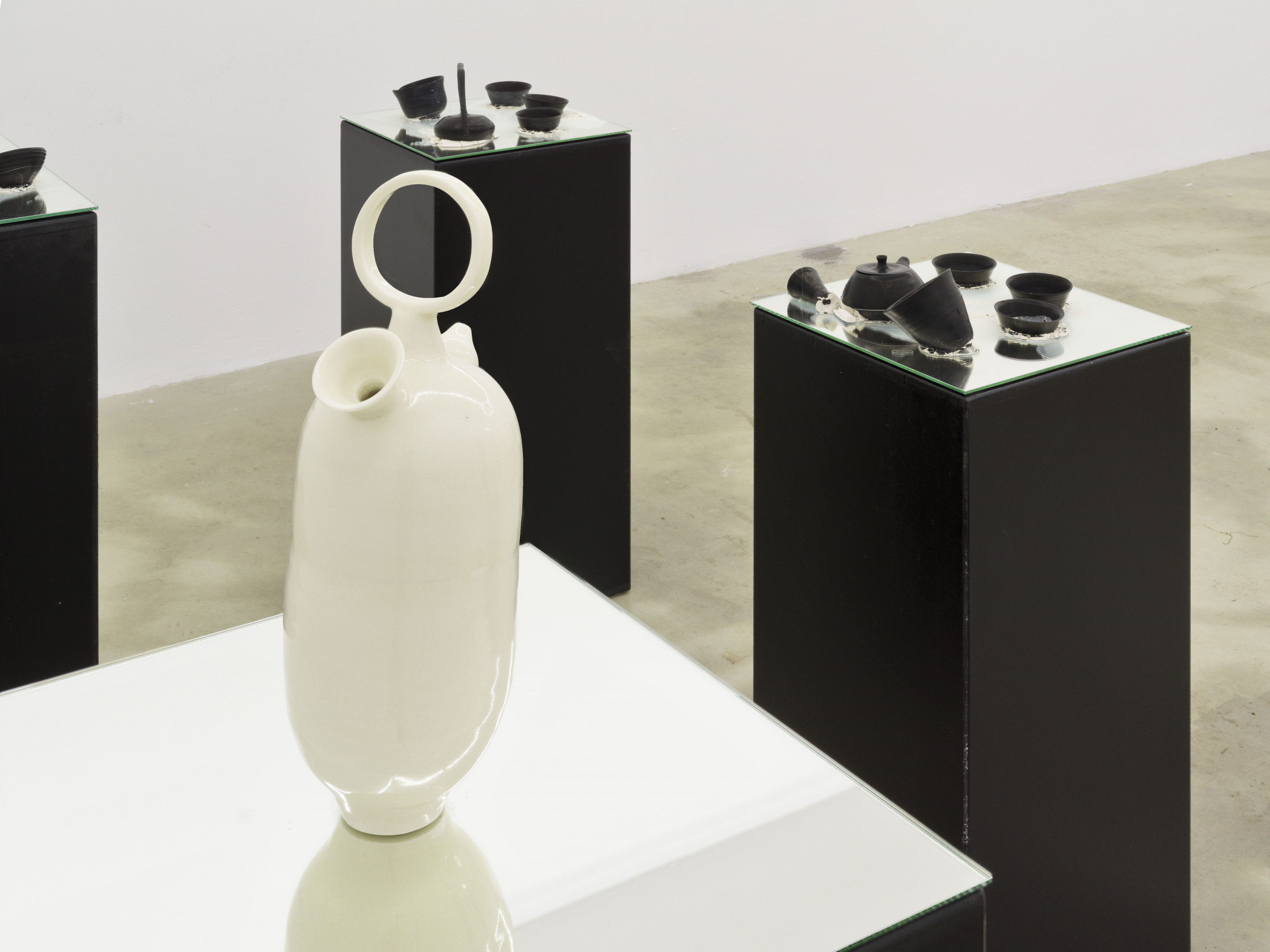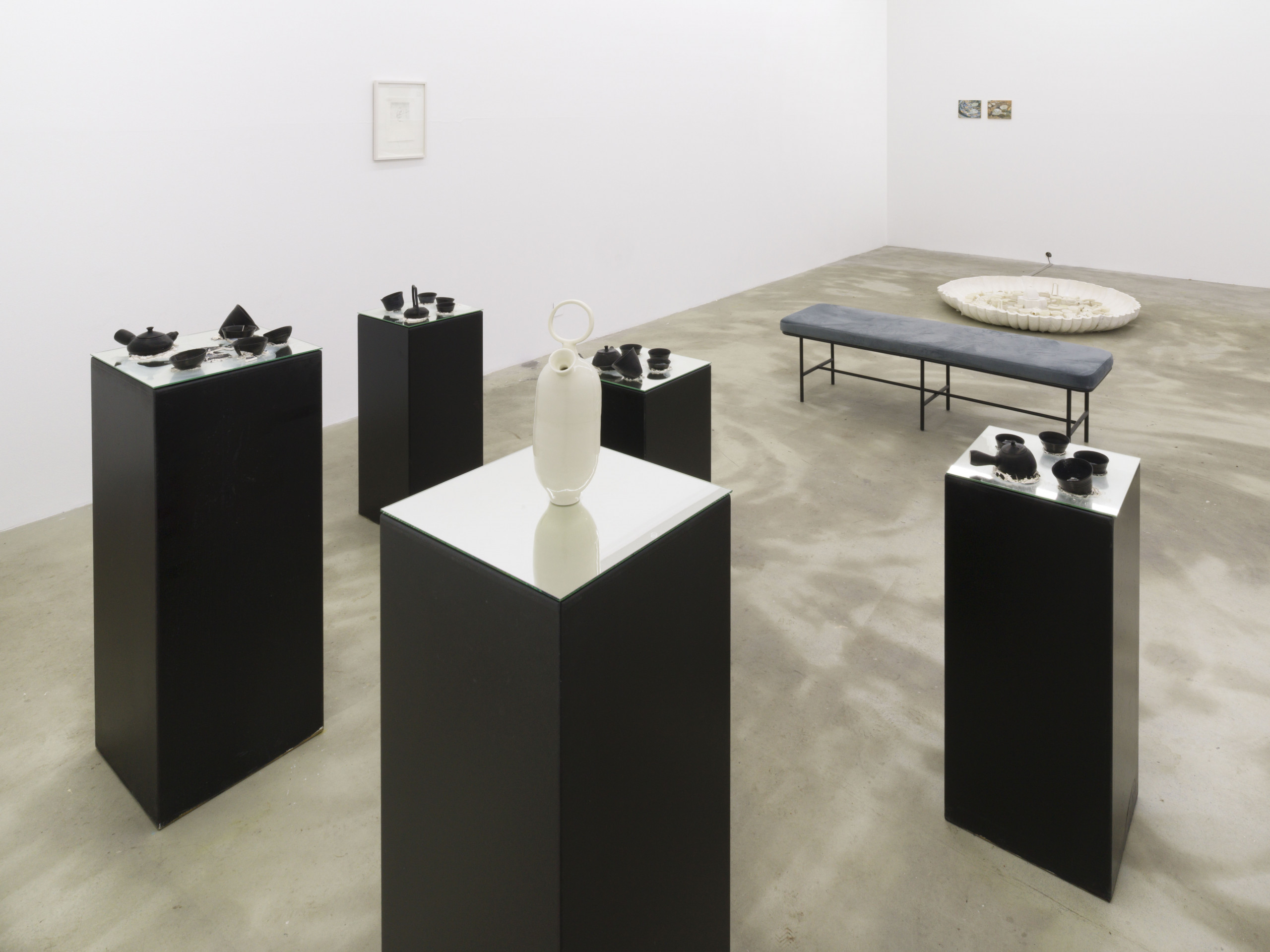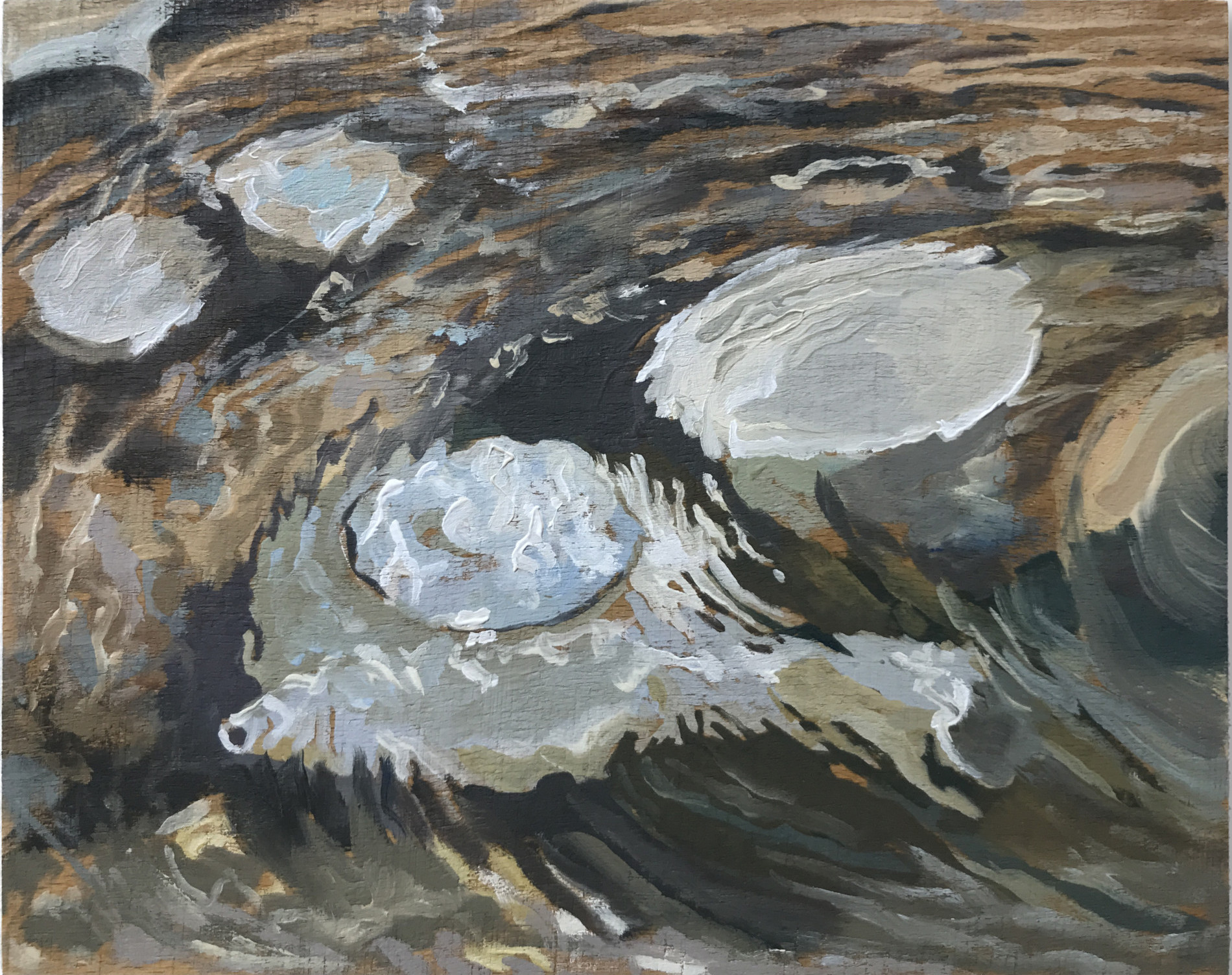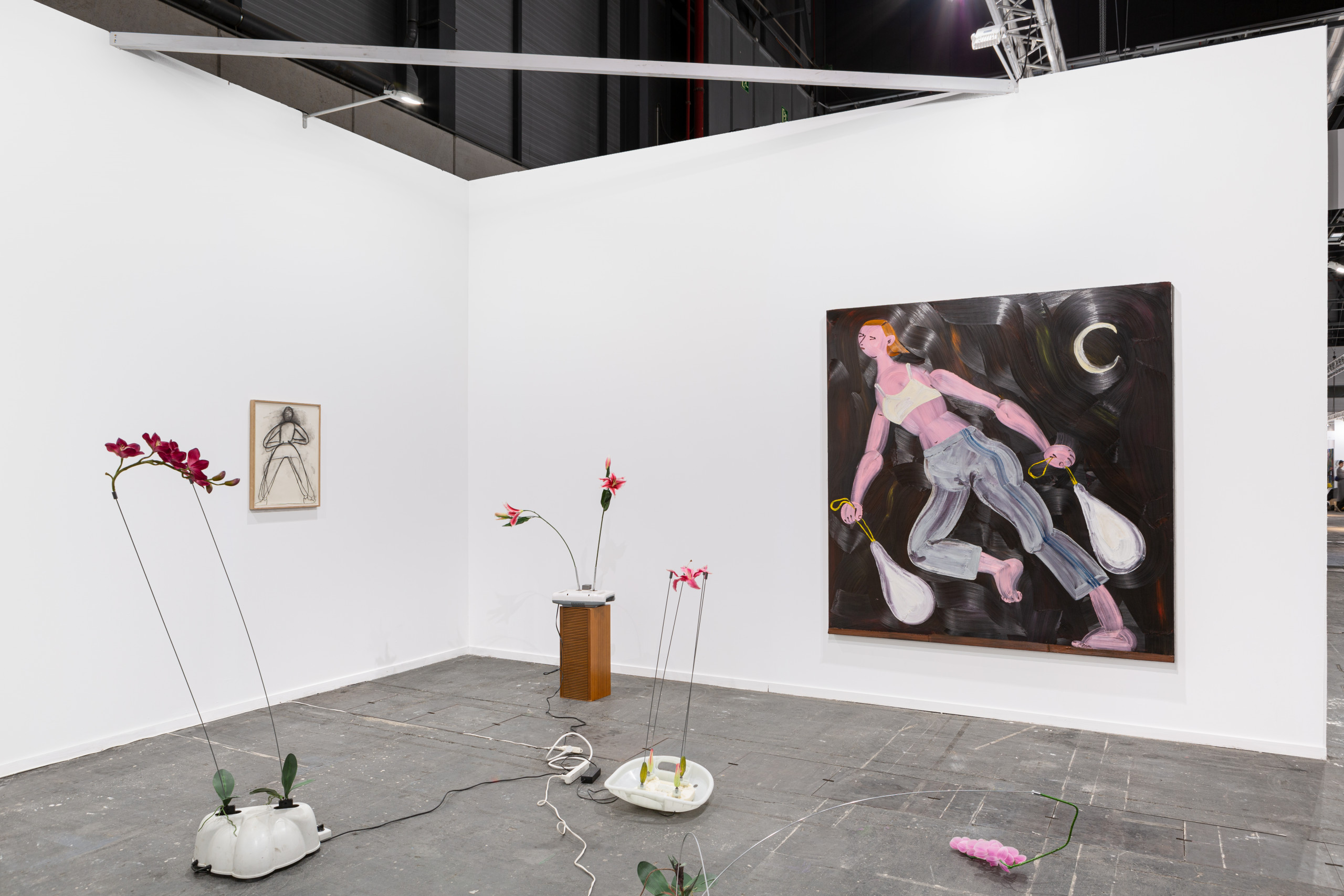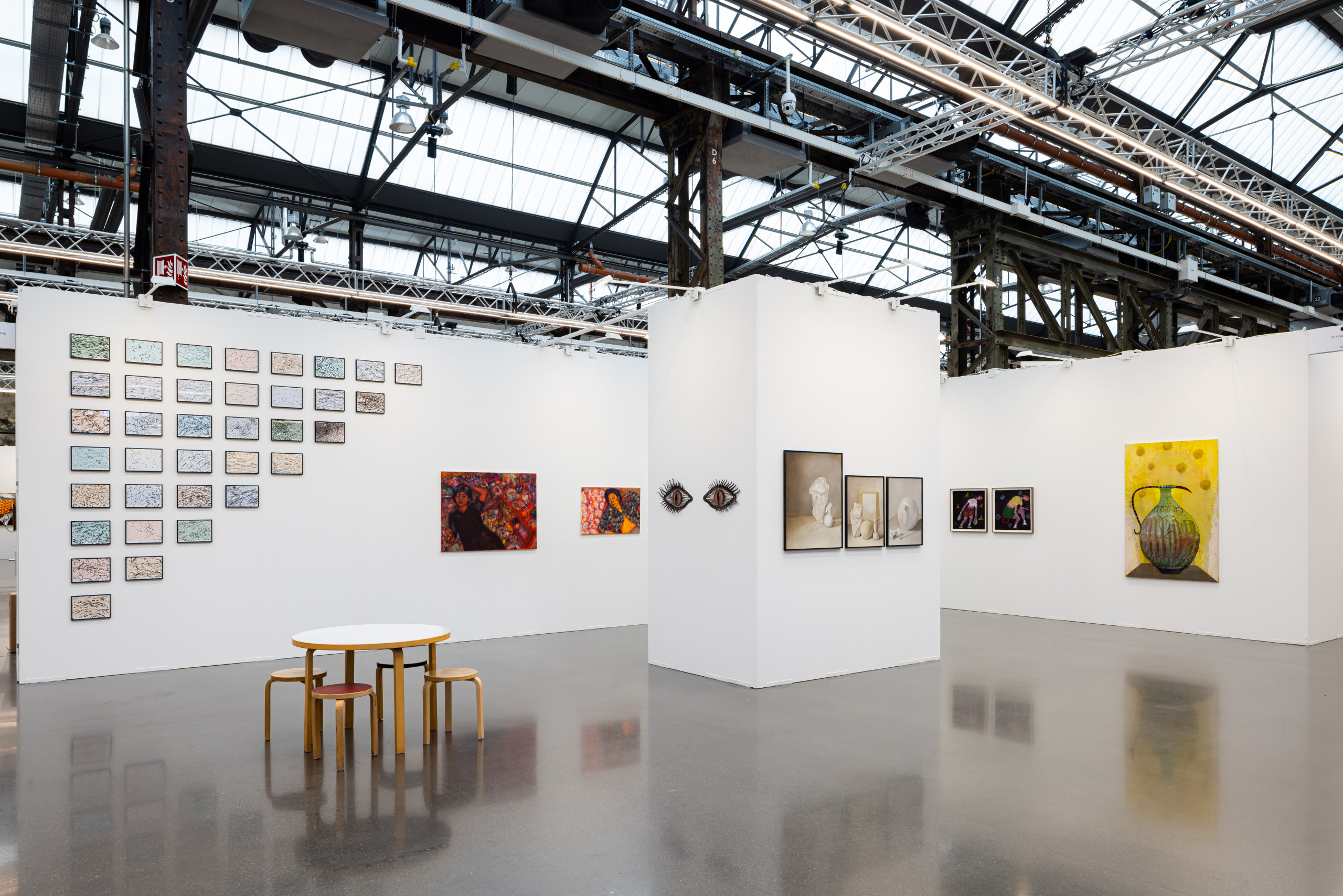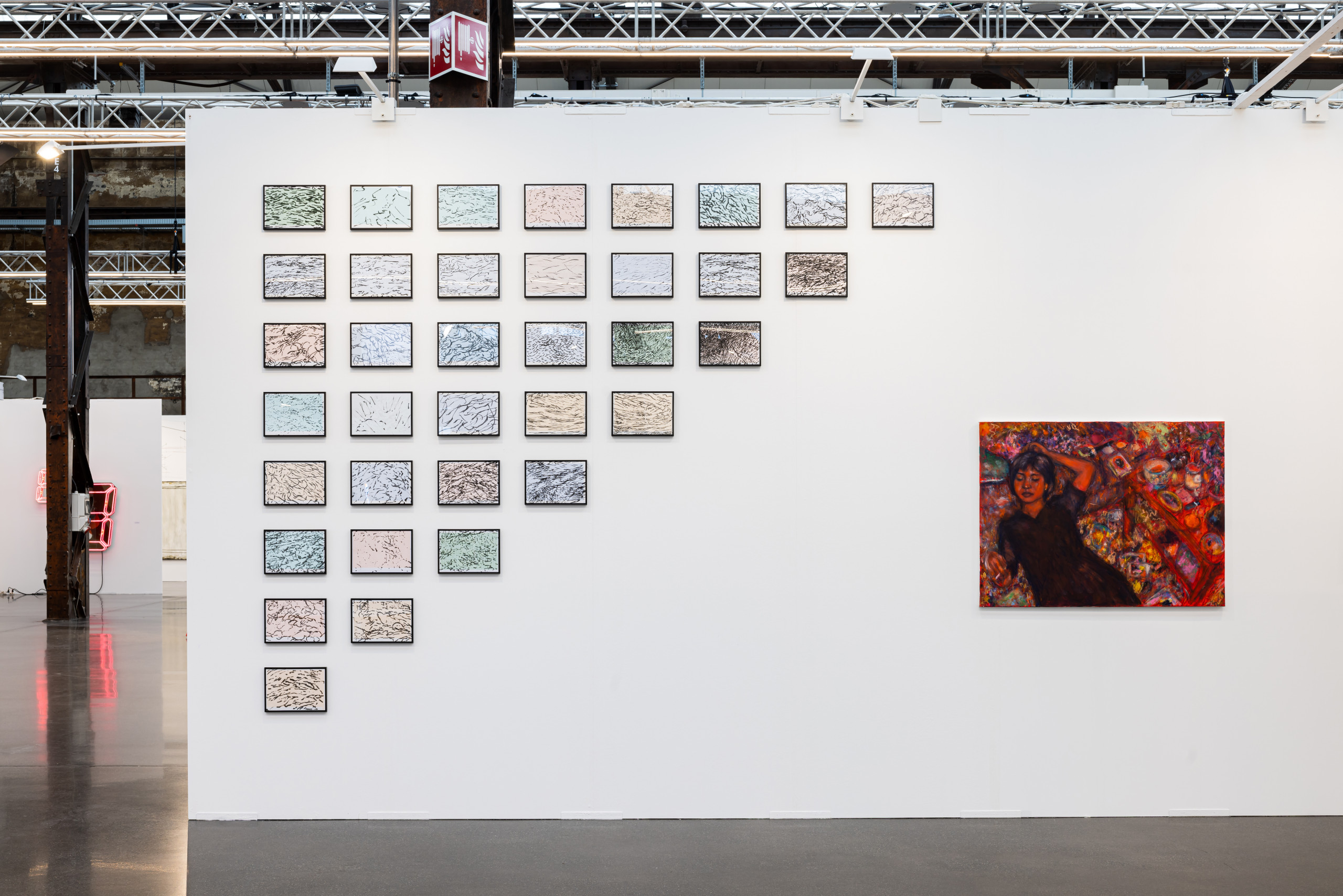Yi Ten Lai • Oriente, Sur de Occidente • 10.02.–25.03.2023
Join us for a live sound performance! Yi Ten X Jablot: The Elsewhere That I Long For + Interlude: Breath of the Periphery will unfold at 7 pm on Friday, March 24 at Soy Capitán.
Porcelain, ash, ink, silk, water, shellac, oil. Black/white, fired/un-fired, smooth/crackle-glazed. The remains of an Andalusian fountain, in ruins, divided and split, cracked, now re-assembled, as if in an archeological museum. A remembrance of the past. A past self. A former identity. Tactile, silk self-portraits line the walls.
There are Chinese style porcelain cups and pots submerged, resting, under the fountain’s rippled moving flowing water. Inspired by an alabaster fountain in el Patio Dorado in the Nasrid Palace of Alhambra, this fountain too, softly holds and disperses water, bubbling up, barely rising, contained while also in motion. We bask in a soft, dream-like sound. We feel as though we are shrouded, cloaked, enveloped in a magic, mysterious, ancient past. Brought back in time, reminded of who we once were.
One bathes in the sounds, materials and symbols that artist Yi Ten Lai evokes. Lai examines sensations of national and cultural belonging through the lens of traditional crafts and rituals. Reflecting upon her Spanish (Andalusian) upbringing and Chinese (Hakka/Hongkongese) roots, Lai proposes a more fluid, organic binary around East/West. She is drawn to the elements of Spanish identity that are foreign or othered. Growing up in the south of Spain, Lai was surrounded by Hispano-Muslim/mudejar architecture, which exists, to this day, hundreds of years after the Catholic annexation of Spain. The Arabic influence on Spain can still be seen and felt. Lai references academic Edward Said in her work. As he writes, “The Orient that I describe… is always something that is “out”, something that represented the peak and, in a certain way, the most unreachable form of that Romanticism that Europeans were looking for. In this sense, the contrast with Spain couldn’t be bigger, due to the fact that Islam and Spanish culture lived with, rather than belligerently confronted, each other”.
Cultures and civilisations overlap and bleed into each other throughout history. Through her paintings, performances and ceramic works, Lai investigates alterity. Foreignness, as a concept, is questioned. Lai writes of the East/West disconnect: “There is a lack of communication between the terms that make up the dichotomy. The liquidity of the bar (the / between East/West) would allow a kind of osmosis between binomial meanings and signifiers… for example, the binomial sky/earth, which in Chinese cosmology is unified with cloud and rain. It is interesting to encourage the meeting of the two parts of the hierarchical opposition, so that there is a mixture”. She cites the work of writer François Cheng: “If, in a general way, a fountain flowing in a single direction symbolises irreversible time, thinkers and poets do not forget that the water of that fountain evaporates little by little; ascending towards the heights, it transforms into cloud and then falls again in the form of rain to replenish the water. In this way the terrestrial linearity is continuously being broken by an invisible earth-sky circle.”
Identity, like a binary, can be fluid while simultaneously strongly-felt, elusive, performative, constructed, ambiguous. In Lai’s studies, she dives into the dynamics and rhetoric of self, self in relation to time, the history of one’s self and the formation of one’s identity, as well as self in relation to others. Lai is pulled towards the ritual as, she explains, “Rituals are basically about togetherness. They all have the common element of repetition, rigidity and redundancy. Attending rituals, sharing these experiences of togetherness, creates kinship. I believe my performances can evoke this.” Otherness, while at the heart of Lai’s practice, does not need to separate or eliminate, but can build and heal off of what has come before. One could belong less to a nation, and more to a notion, a sensation of Otherness.
Yi Ten Lai (b. 1996, Bailén, Spain) holds a degree in Fine Arts from the Complutense University of Madrid, ES (2019) with a year at the Berlin University of the Arts, Berlin, DE, and a year at the Polytechnic University of Valencia, ES. Lai lives and works in Berlin and Copenhagen.
– Amelia Wilson
Press
Video
Yi Ten Lai performing Mamá y Papá at Soy Capitán • Oriente, Sur de Occidente • 10.02.–25.03.2023
